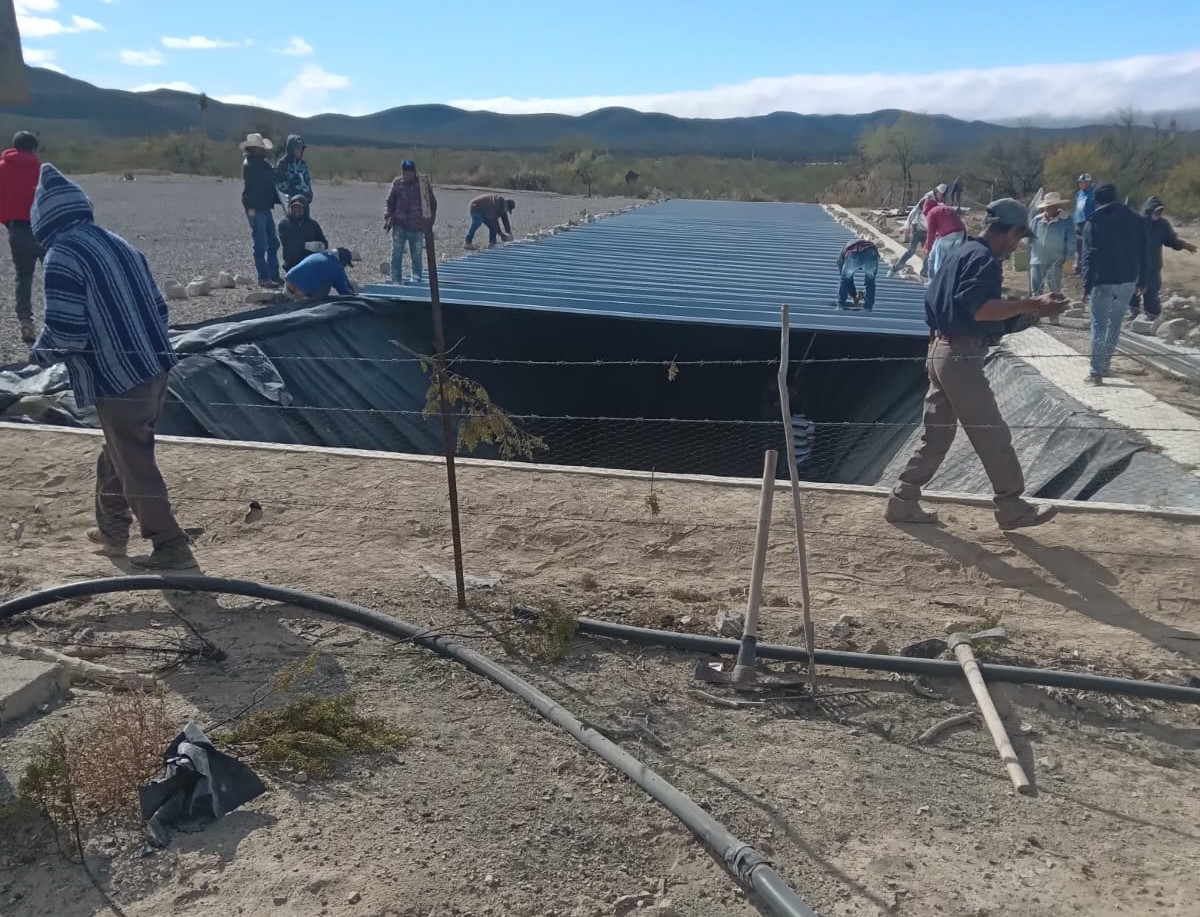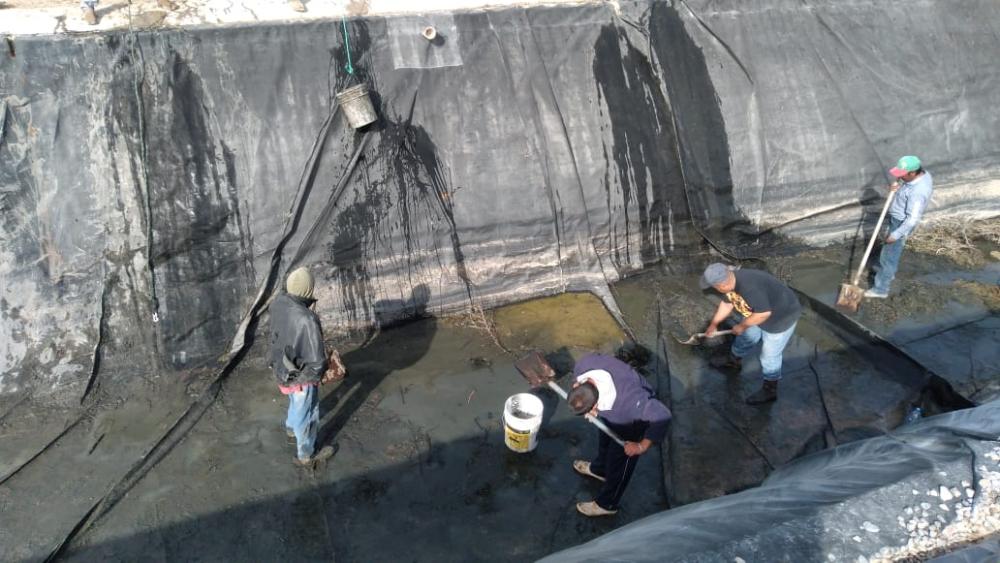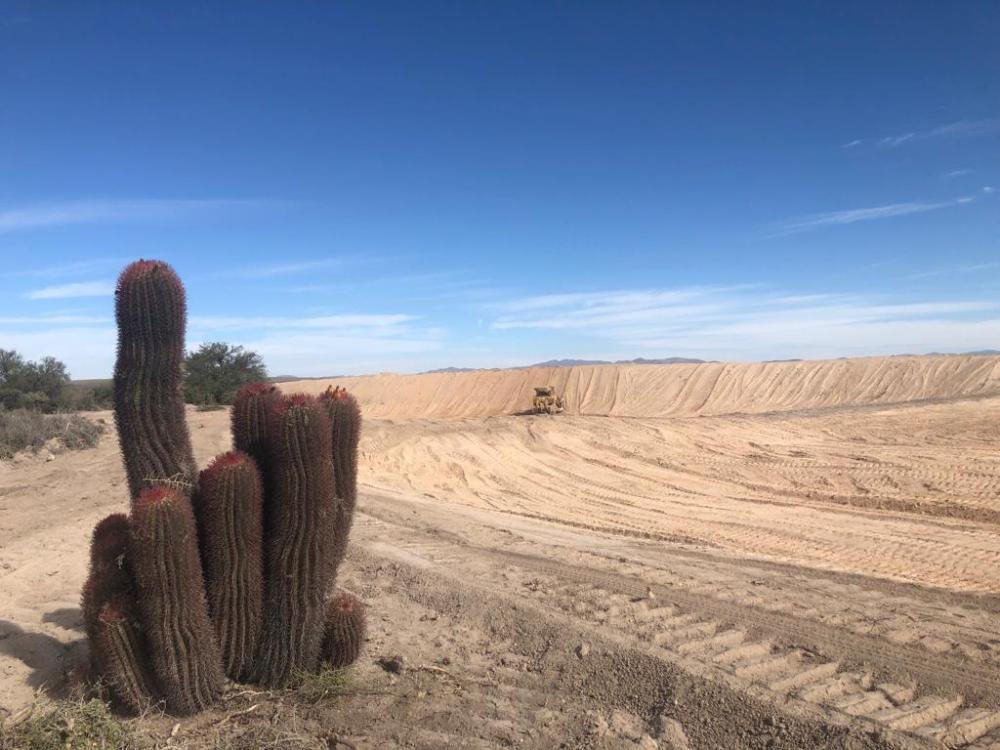In partnership with CONAZA, Mexico’s Secretariat of Agriculture and Rural Development, and the Office of the Mayor of the Dr. Arroyo Municipality in Nuevo León, IICA is undertaking projects for water infrastructure rehabilitation and maintenance, among other initiatives.

Mexico City, 9 February 2024 (IICA)- The Inter-American Institute for Cooperation on Agriculture (IICA) is conducting rainwater harvesting and efficient water use programs in the semi-arid region of the state of Nuevo León, Mexico, where the average annual rainfall is 250 millimeters.
The programs are taking place in the San Felipe community of Dr. Arroyo Municipality, under a project entitled: proyecto “Vitrina Tecnológica para la Difusión de un Modelo de Gestión Hídrica para el Desarrollo Sostenible del Semiárido Mexicano”, or in English, “Technological Window for the Dissemination of a Water Management Model for the Sustainable Development of Semi-Arid Mexico”. They are being undertaken in partnership with the National Commission for Arid Zones (CONAZA) and the Office of the Mayor of Dr. Arroyo, Nuevo León, and with the participation of the community of the municipality.
The project is aimed at building public and private water management capacities in semi-arid regions, establishing and operating a technological window focusing on options to harvest rainwater (reservoir; bordos and other types of dams; tanks; roofs; catchment areas and cisterns) and ensure its efficient use in producing food, for example in kitchen gardens; in the cultivation of prickly pear cactus; and in cattle and goat farming.
The initiative is also driving value addition strategies to build food security and climate change resilience, with the potential to be replicated in other areas of Mexico and the hemisphere.
IICA’s Technical Coordinator in Mexico, José Luis Ayala, met with authorities from the San Felipe community—Héctor Manual Arias, Head of the General Directorate of CONAZA; Juan Vargas, Mayor of Dr. Arroyo; and Arnoldo de Jesús Tienda Soto, Head of the CADER/SADER office in Santa Ana—providing details on the successful rehabilitation of a dam with a storage capacity of close to 13 million liters.
Ayala presented the results of the rehabilitation of a tank, with a rainwater catchment area of 2,100 m2, with the capacity to store approximately 540,000 liters of water

Mayor Juan Vargas spoke about the reservoir built with resources from the municipality and the government of Nuevo León, which boasts a storage capacity of approximately 2 million liters of water.
Héctor Manuel Arias, of CONAZA, stressed the importance of continuing to work through various inter-institutional partnerships and with the participation of the residents of San Felipe, to move forward in ensuring the integral use of harvested water, for which governance of the community is key.
CONAZA conducted the onsite geological analyses and provided technical support that was critical to the success of the project.
Ayala, Technical Coordinator at IICA Mexico, emphasized the proposal that IICA had made to the authorities to amend the regulations of the district, with a view to strengthening the management of water resources harvested with the already existing infrastructure, by establishing clear rules, criteria for usage, priorities and quotas

Community leaders, Jesús Pérez and Luis Rodríguez, thanked IICA, CONAZA and the Office of the Mayor of Dr. Arroyo, and assured them that they were now able to harvest all the rainwater needed for their families, cultivation areas, cattle and sheep.
They also gave their commitment to properly maintain the infrastructure, which could have a lifespan of 30 to 40 years.
As a next step, the participants agreed to devise actions in the coming weeks to build capacities and enhance value addition in prickly pear production, as well as to introduce better practices in kitchen garden production.
The IICA initiative is seeking to ensure a consistent water supply; foster crop diversification and drive job creation in the community, thereby serving as a technological window of opportunity to propose strategies and sectoral policies to address the challenge of proper water management.
More information:
José Luis Ayala, Technical Coordinator, IICA Mexico.
jose.ayala@iica.int











